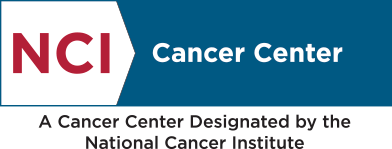Screening
Call or complete our questionnaire to see if you meet the criteria for a breast cancer screening.
Call us at
305-689-CARE (2273)
Or
Mammogram
A screening mammogram looks for signs of breast cancer in women who don’t have any symptoms or breast problems. This quick, low-dose X-ray can spot breast irregularities, such as a breast lump or calcium deposits, before they can be felt. Mammograms expose you to small amounts of radiation, but the benefit of mammograms – potentially finding cancer early, when it’s more easily treated – is far greater than risks related to radiation exposure.
Mammograms are the best breast cancer screening test available – particularly 3D mammograms (digital breast tomosynthesis), which show breast tissue more clearly. Talk to your doctor to find out what’s right for you, based on your personal and family history and risk factors.*
If a screening mammogram finds a growth or another breast abnormality, you’ll need a follow-up diagnostic test – such as specialized mammographic views, breast ultrasound, breast MRI, or a breast biopsy. Sylvester is the only NCI-designated cancer center in South Florida offering the new technology of contrast-enhanced mammograms for breast cancer detection. Any tests in addition to a screening mammogram are considered diagnostic tests, which may have out-of-pocket costs. Check with your insurance provider to learn about your coverage.
Even if you don’t have an abnormality your doctor may recommend breast ultrasound or MRI in addition to a screening mammogram if you’re at greater risk of breast cancer or you have dense breast tissue.
How is a mammogram performed?
During a mammogram (either 2D or 3D), you stand in front of an X-ray machine, and the imaging technologist will place your breast between two plates to make it flatter. You’ll be asked to hold your breath and be still for a few seconds while the X-ray is taken. This process is repeated to take another picture of your breast from the side. The same thing is done on your other breast. The entire process only takes a few minutes.
Breast ultrasound
A breast ultrasound uses sound waves to determine whether a lump is made out of fluid (a cyst) or whether it’s solid (a tumor), in which case a biopsy may be necessary. It does not cause radiation and is very safe. It may also be used as an additional screening tool in patients with dense breast tissue.
Breast MRI
Women at higher risk of breast cancer may benefit from breast MRI in addition to a mammogram. Breast MRI is extremely sensitive and effective in finding small cancers. But, some cancers and noncancerous (benign) tumors can look the same, which can sometimes lead to further testing. Your doctor will explain the benefits and drawbacks of adding a breast MRI to your screening program.
Women at high risk who may benefit from breast MRI have:
- Genetic mutations such as BRCA1 or BRCA 2
- Strong family history of breast cancer
- History of chest radiation therapy before age 30
- Lifetime risk assessment greater than 20%
- A history of breast cancer
Your doctor may suggest a contrast-enhanced mammogram as an alternative to MRI if you have severe claustrophobia, implanted metal devices, or an allergy to gadolinium (dye used during the MRI to show more detail). This is also a less expensive test than a breast MRI. Sylvester is the only cancer center in South Florida to offer this advanced imaging approach.
Additional services for women at high risk
Under the Affordable Care Act (ACA), insurance providers are also required to cover additional services for those at greater risk of breast cancer, including:
- Genetic testing and counseling for gene mutations in women who have a personal or family history of breast, ovarian, fallopian tube, or peritoneal cancer
- Preventive medicine for women with a higher risk of breast cancer
We create personalized screening plans designed around your needs. Our goal is to make sure you have all the information you need to make informed decisions about your health and protect against breast cancer.
Breast cancer screening resources
- American Cancer Society
- Breastcancer.org
- Cancer.Net
- Centers for Disease Control and Prevention (CDC)
- National Cancer Institute
- Preventive Care Benefits for Women (HealthCare.gov)
- U.S. Preventive Services Task Force
*Always check with your insurance provider before any screening or test to determine coverage.
